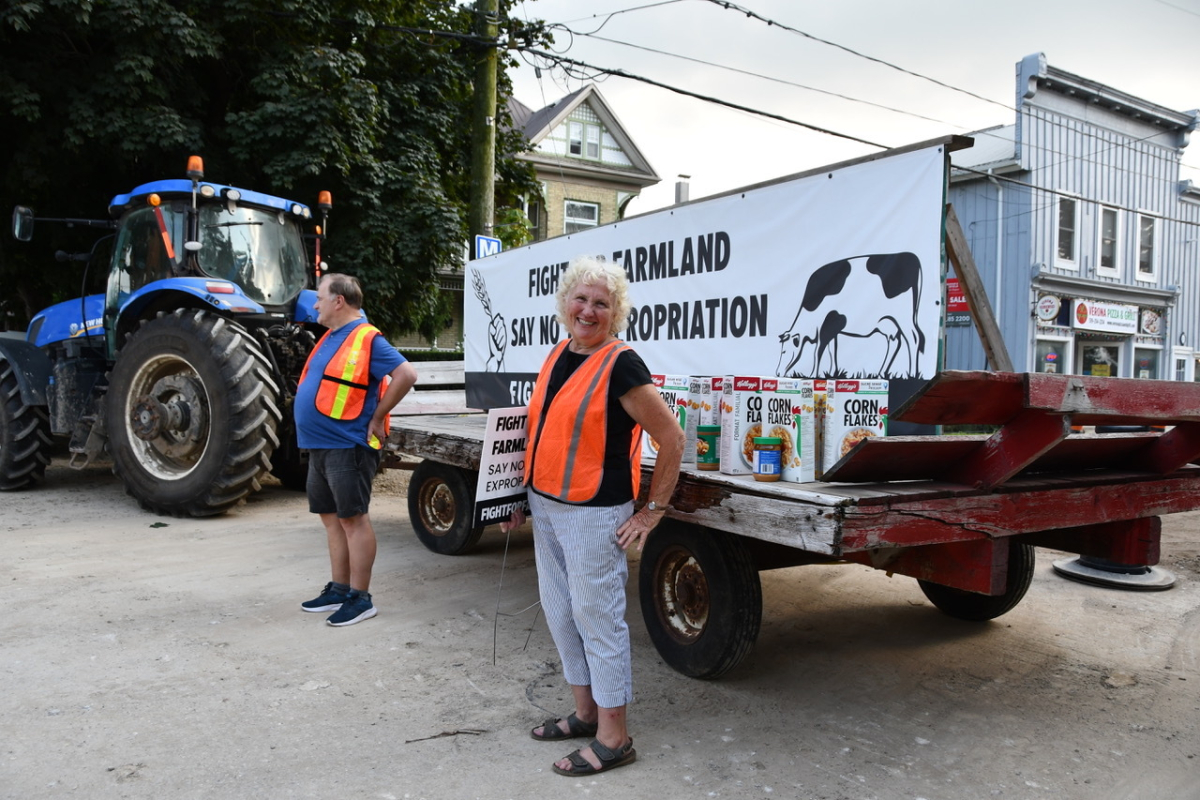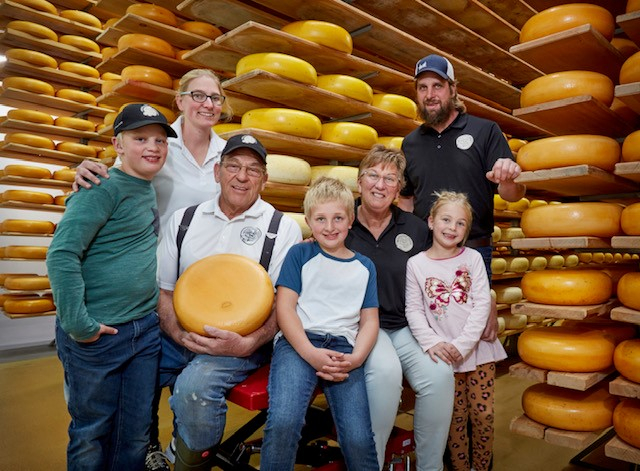Support strong Canadian climate journalism for 2025
A family-run cheese farm in Southern Ontario’s Wilmot Township is facing pressure from the regional government to sell its land — all for a project the government won’t even disclose information on.
“We feel harassed,” said Adam van Bergeijk, the owner of Mountainoak Cheese, which operates its 140-hectare farm an hour’s drive west of Toronto. “This is our life. Our life is farming, and that’s what we’re good at.”
If the van Bergeijks refuse, the land could be expropriated, leaving their family farm — and their way of life — under severe threat.
Van Bergeijk joined a crowd of more than 300 protesters outside the Township of Wilmot council meeting on Monday, demanding an immediate halt to the expropriation of 311 hectares of farmland. They argue that this “forced acquisition” by the Region of Waterloo would have a devastating impact on Ontario's food security, farmers' livelihoods and the environmental health of the community.
On its website, the Region of Waterloo says the land assembly is intended to “create a large-scale, shovel-ready site that is attractive to a major employer,” and that it “aims to secure generational investment that will result in thousands of well-paying local jobs and further economic prosperity in Waterloo Region.”
The site selection process, the website says, focuses on features like large contiguous space, highway access, existing hydro and water infrastructure, and proximity to a skilled workforce and educational institutions.
Van Bergeijk is among five landowners and several advocates calling for the land not to be expropriated by the Region of Waterloo.
The proposed acquisition threatens to remove about a third of the cropping area that the van Bergeik family has cultivated since 1996, when they immigrated from Holland.
“It’s not just about losing land,” van Bergeijk told Canada’s National Observer. “It’s about the future of our farm and our ability to sustain our operations. We never expected that this would ever happen to us.”

If the land is converted for industrial use, van Bergeijk said he would have to find alternative land, which is not readily available. This uncertainty makes it difficult to plan and invest in the future of his farm.
“We’re not getting clear answers about what’s coming next,” he said. “There are concerns, and we need to know what we’re dealing with. This is a lot of secrecy, a lot of NDA [non-disclosure agreements] and conflict of interest.”
Van Bergeijk recounted that when the Region of Waterloo approached him to buy his property, he made it clear that he had no intention of selling. Despite his refusal, the region insisted they would purchase the land anyway. A few days later, in March, he received an offer that was significantly below the current agricultural value.
Van Bergeijk has three children who are all involved in farming and 11 grandchildren, many of whom wish to continue the family tradition. He added that this uncertainty is affecting them all.
The family’s dairy operation, which includes over 500 animals, with approximately 250 milking cows, relies heavily on the land in question. The milk they produce is used for their cheese and dairy products, which are sold across the province.
The Monday rally was organized by Fight for Farmland, a group representing residents and landowners opposed to the proposed industrial development in Wilmot Township. Kevin Thomason, a local environmental advocate and one of the rally organizers, told Canada's National Observer that the event sent a clear message of the community’s unwillingness to support the project.
“We had over 300, and likely 400, people in attendance,” Thomason said. “All were expressing horror at the process so far, the lack of even a single public meeting.”
Despite multiple attempts by Canada’s National Observer to obtain information, the Region of Waterloo chair and councillors, as well as their counterparts in the Wilmot Township, refuse to disclose details of the project, citing the Municipal Act, which keeps closed-session discussions confidential. All decisions about the land selection process have been made behind closed doors.
The region already purchased some of the land and has said it’s needed for future industrial use, but has not provided any details yet.
Earlier this month, the Region of Waterloo council unanimously passed a motion brought forward by Wilmot Mayor Natasha Salonen to ensure that no more unharvested crops will be destroyed on land acquired by the regional government for the undisclosed project.
This decision followed backlash from the community after the Region of Waterloo destroyed 64 hectares of corn on land purchased from one of the six farmers and landowners, which sparked outrage among local farmers, the community, and even two township councillors.
This story has been corrected to reflect the proper spelling of Adam van Bergeijk's last name.






Comments
One wouldn't be surprised to find that Doug "The Thug" Ford is behind this somewhere filling the pork barrels of one of his corrupt donors. Regardless, it is shameful that you have a council that is more interested in serving the needs of an outsider than the people impacted in Waterloo. Next election, vote the entire lot out, that is what they deserve for disrupting lives and destroying prime farmland. Even worse, keeping the project secret, smells of corruption and shows the council is not transparent and accountable to it's residents.
Corporate greed run amuck by compromising elected officials to protect their insatiable greed for profit at anyones expense. This is happening everywhere, those elected to serve the people are serving the pigs and themselves instead.